Cardeno C.'s Blog, page 101
December 20, 2014
20 Quick Questions Roundup
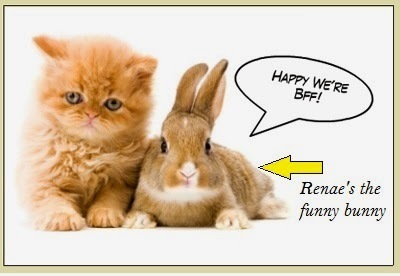 One of the things that fascinates me as an individual, is how different people can be, yet still be friends. My BFF, for example, lives a completely different life from mine. Our tastes in men, furniture, clothes, food, music and world events completely differ. The only thing we can agree on is literature. We are both MAD for romances. Yet we get along fabulously, and never (*cough cough*) run out of things to talk about. (And our café bills prove this!)
One of the things that fascinates me as an individual, is how different people can be, yet still be friends. My BFF, for example, lives a completely different life from mine. Our tastes in men, furniture, clothes, food, music and world events completely differ. The only thing we can agree on is literature. We are both MAD for romances. Yet we get along fabulously, and never (*cough cough*) run out of things to talk about. (And our café bills prove this!)If friends can be different, yet friends, how different are authors from one another? We all write in the same genre. We all slave over keyboards. Does that mean we are the same in other parts of our life?
So I decided to set out on a hunt – a multipurpose hunt. I gathered together a group of Australian M/M authors, and posed the same 20 questions at them. We're all Australian. All writers. All love M/M.
So how similar are we??
(It helped also that it meant I didn’t have to blog that week on my website, plus a bunch of Australian authors got a bit of free promo from me!)
I have had 14 authors respond – you can see their individual answers here: http://renaekaye.weebly.com/renae-blogs. Those who responded were
NR Walker, Toni Griffin, LV Lloyd, Beany Sparks, Jess Buffett, Michelle Rae, Nic Starr, NJ Nielsen, AB Gayle, LJ LaBarthe, EE Montgomery, Penny Brandon, Lisa Henry and Lisa Harris.
This is what I can tell you:
* All authors who got back to me happened to be women (so far. I’ll nudge the guys again)
* They came from all over Australia – five from New South Wales, three from Queensland and South Australia, and one each from Western Australia, the Northern Territory and the Australian Capital Territory.
* Less than half knew their state’s bird emblem. **wink**
* With fourteen random people, we could expect a large range of star signs in our mix, but actually, we had three people from Aquarius, Aries and Taurus each. Also one each from Gemini, Leo, Libra, Virgo, Scorpio and Leo. (Surprisingly my google searches seemed to say that Virgos are the most suited to writing).
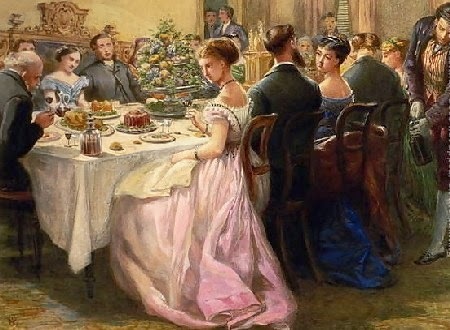 * Everyone would prefer to attend a dinner party rather than a rave – this is a very authorly trait obviously.
* Everyone would prefer to attend a dinner party rather than a rave – this is a very authorly trait obviously.* Half of my respondents identify as night owls. Only one said they were a morning bird.
* When asked pizza, burger or Chinese, no one prefers pizza. Two people would prefer a burger, but overwhelmingly 10 out of 14 would go Chinese.
* They had a range of favourite drinks: coffee, tea, water, wine, hot chocolate, coke, G&T, green tea.
* They had a range of favourite ice cream flavours.
* The most favoured colour is blue, followed by green, then red.
* Eleven out of 14 would go mad if they didn’t write.
* When asked if they draw most inspiration from pictures, plots or people, four answered pictures, three answered plots and two people.
So what can I infer from this? Not a lot, apart from if we ever get together we should have a dinner party with Chinese. Perhaps if I analysed what each person finds the hardest and most frustrating part of writing?
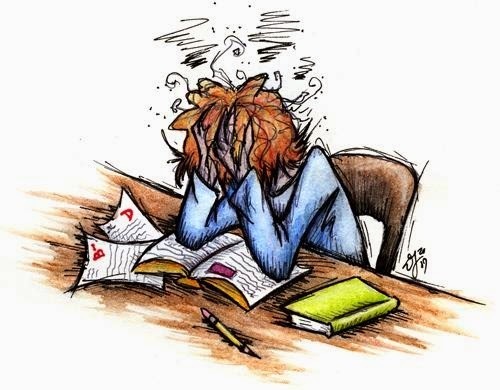 The most frustrating part of writing?Ewyn: Editing character development.
The most frustrating part of writing?Ewyn: Editing character development.Penny: Not getting to the end quick enough.AB: Starting.
LJ: Titles. I fail at them.Jess: Writing the synopsis Michelle: Editing.LV: Editing.
Beany: My muse PITA.NR: Details. The devil is in them.
Toni: Not having enough hours in the day to get it all done.Nic: Sometimes it’s hard to find the time to write as there are just not enough hours in the day!NJ: Punctuation (I suck at it) also Synopsis & Blurbs.Lisa Harris: Writers block without a doubt, edits coming a close second.Lisa Henry: Staying focussed enough to finish writing one thing instead of being distracted by shiny new ideas. My list of WIPs is out of control.
**sigh**
No help. I guess I will have to expand my search and see.
Don’t forget to check out the full answers of each author on my blog: http://renaekaye.weebly.com/renae-blogs
 With Christmas in less than a week, I am busy with end of year activities and present sourcing/wrapping. So I want to wish everyone a very Merry Christmas. Be happy. Be safe. (Read a book and leave an author a review as a present).
With Christmas in less than a week, I am busy with end of year activities and present sourcing/wrapping. So I want to wish everyone a very Merry Christmas. Be happy. Be safe. (Read a book and leave an author a review as a present).See you next week.
How to contact Renae:Email: renaekaye@iinet.net.auWebsite: www.renaekaye.weebly.comFB: www.facebook.com/renae.kaye.9Twitter: @renaekkaye
December 17, 2014
Ask Andrew - Secondary Characters
Has there been any characters that started off as supporting characters, but then developed into a more prominent character? Dawn Dear Dawn Secondary Characters have morphed into more prominent characters on many occasions. A good example is Cliff Laughton. When I wrote Love Means... No Shame, Cliff was just Geoff's father who had passed away. But even his absence and his loved ones reaction to it, touched me and I had to go back and write Love Means... Courage to tell Len and Cliff's story. Another secondary character that just had to have his story was Phillip form a Troubled Range. He was a secondary character in two stories before he got his own. When I started this manuscript, Phillip was actually starting to get pissed with me. He'd been a bride's maid twice and it was his turn to be the center of attention. In an upcoming story, The Price, there is a secondary character, Ember. Think calm, long dark hair, rich skin and deep eyes. He's very zen and knows his place and what he wants. At least he thinks he does. Ember is getting his own story very soon because while he never raises his voice, he's starting to scream in my head. I almost never start out intending to write a series. Usually I'll write the first book and then a secondary character will step up and start asking for his story. But as you can tell, that tends to happen quite a bit. Hugs and LoveAndrew
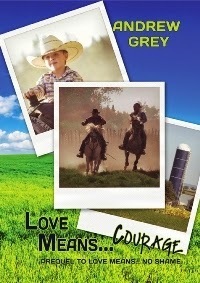 Ask Andrew is your chance to ask questions of a gay romance author. The questions can be about the writing process in general, writing sex scenes, gay men, sex, characters in romance, characters having sex... okay you probably get the picture. I promise to answer your questions as frankly and with as much humor as I possibly can.
Ask Andrew is your chance to ask questions of a gay romance author. The questions can be about the writing process in general, writing sex scenes, gay men, sex, characters in romance, characters having sex... okay you probably get the picture. I promise to answer your questions as frankly and with as much humor as I possibly can.So if you have a question, please send it to andrewgreybooks@comcast.net. This is different from my usual email so your questions don't get lost. I will answer one question a week.
Please remember this is meant to be all in fun. (I was going to say good, clean fun, but who wants that.) So send me your questions and let's see what mischief we can get into.
Visit Andrew on Facebook: https://www.facebook.com/andrewgreybooks and you can join Andrew's fan group All The Way With Andrew Grey.
Follow him on Twitter: @andrewgreybooks
Visit Andrew's web site: www,andrewgreybooks.com
December 16, 2014
Cereus! Ahem.
See, I came up with Bloodrose, a paranormal nightclub, years ago. Its owner, Jonny, has (most of) his story in Belling the Cat, with a super hot cameo in An Itch to Scratch. (both at www.torquerepress.com)
But when Jonny came up with Cereus, a paranormal resort in the far western Rockies, he told me to ask BA and Sean to help me. (I listen to the voices in my head, don't you?"
Cereus: Building was born. Y'all, we had such fun, with Sean introducing Zee and Daniel, who sort of act as the hinge for the whole world. A dragon and a demon. Yum. And there were werekitty chefs and a werewolf contractor... we laughed a lot, and got into IRC channels to talk characters...
Now we're on book 4! Seriously, how does that even happen?
Werebears, demons, werewolves, and vampires dominate this one. Sexy. Funny. Sad, sometimes, when a spirit bear has lived in captivity. Did you know about spirit bears? White colored black bears only found in Canada. I had to ask Sean Michael to run with that, right?
Here are some favorite lines from the new book.
Fish poots were the worst.
So, Twister was obviously not made for stone demons.
“But, like, if he’s erect and turns to stone…”
“No.” Oh, hell, he hoped that didn’t happen, although, then he’d have his own personal dildo...
"Don't make me beat you vampire. That's for later."
He loved the word derp. The sound made him think of duckshit hitting water.
How about a wee excerpt from Spirit Bear by Sean?
It was snowing. Like whoa. Like a lot. Etu sat at the window and stared at it.
Pretty snow. Lightening's heat warmed his back.
"It is. It makes it seem like we're all alone."
Etu and me. Etu and me. Lightning sounded so pleased.
"That's right."
Lightning had finally allowed him to close the door, so there was that at least.
Lightning's warm tongue licked along his ear and there was a wave of want.
"I know, bear. Some day."
When?
"I wish I knew."
Lightning sighed, warm air blowing over his neck.
"I'm sorry, bear. I am."
No sorry for my Etu.
"I wish I was a bear."
You would be a beautiful bear.
"Thank you. I'd be a skinny one, for sure." He snuggled in.
Mine. More and more that thought was coming from Lightning.
Etu chuckled. "And you're mine."
Yes. Lightning pressed close, heavy against his back.
"Mmm." He sighed, so pleased. So happy.
Lightning's weight seemed to shift, his fur becoming softer.
"Love you, Lightning."
"Love you, Etu." The voice was deep, husky, rough as if from misuse.
He stilled. "Bear?" Could it be?
"Etu," Lightning repeated, and a hand slid along his arm. "You are soft."
"Oh, God. Please. Please say it's real." He leaned back, feeling skin, muscles, not fur.
"I'm real, Etu." Lightning's hand took his chin and turned his head.
Oh. Oh, his bear was a beautiful man.
"Oh, my bear." Pale and broad, with a chest full of white hair, Lightning looked like he was kissed by snow. The eyes, though, those were the same. Like dark little buttons.
"Etu..." Lightning leaned in, their lips pressing together.
Oh, he moaned and pushed into the kiss. He'd fought the urge to be erect around his bear, resisted the urge to rub, but it had been getting harder and harder lately.
Long arms wrapped around him, Lightning pulling him in close.
"You shifted for me. Thank you. Thank you, love."
"Wanted you." Lightning was so warm, even as a man.
"Yes." He reached out to touch the soft belly. Tell me it's okay.
"It's okay."
Lightening pressed their lips back together again. Etu's fingers pressed flat against Lightning's belly. Lightning breathed, ab muscles flexing with it.
"So good." He moaned low, his palms aching.
"Because you're mine." The husky tone remained in Lightning's voice.
"Yes. Yes, I'm yours."
Cereus: Rescue comes out Wednesday at Torquere Press! www.torquerebooks.com . Go read it, huh?
XXOO
Julia
December 15, 2014
Twitter Recap by Cardeno C.
 End this business name: "Happy Endings In-Home...." Dec 14, 2014
End this business name: "Happy Endings In-Home...." Dec 14, 2014
 Cover reveal for Jumping In,my release w/ @AReCafe --a cop's bad day ends when the vice-mayor finally makes his move! http://t.co/6vpP4VvcZB Dec 12, 2014
Cover reveal for Jumping In,my release w/ @AReCafe --a cop's bad day ends when the vice-mayor finally makes his move! http://t.co/6vpP4VvcZB Dec 12, 2014
 I love @Scribd as a reader so happy to say my shifter novella Blue Mountain is now in the catalog for other readers! #amreading Dec 11, 2014
I love @Scribd as a reader so happy to say my shifter novella Blue Mountain is now in the catalog for other readers! #amreading Dec 11, 2014
 How many of these delicious things can I eat and still consider this a healthy dessert? http://t.co/qYh3mDGJHs Dec 11, 2014
How many of these delicious things can I eat and still consider this a healthy dessert? http://t.co/qYh3mDGJHs Dec 11, 2014

 1)You know what would make this knife better? No handle. 2) Primitive space-age, like business casual only worse. http://t.co/ZPmsZ3sbGm Dec 10, 2014
1)You know what would make this knife better? No handle. 2) Primitive space-age, like business casual only worse. http://t.co/ZPmsZ3sbGm Dec 10, 2014
 Stayed up late reading the cute Hummingbird House by @thekenziecade, childhood friends/reunion romance was gr8! http://t.co/c1XrFTFOxE Dec 10, 2014
Stayed up late reading the cute Hummingbird House by @thekenziecade, childhood friends/reunion romance was gr8! http://t.co/c1XrFTFOxE Dec 10, 2014
 Be afraid. Be very afraid.
Be afraid. Be very afraid.
 http://t.co/ZW3TyVrfY9 Dec 10, 2014
http://t.co/ZW3TyVrfY9 Dec 10, 2014
 Free read TJ and Finn now on my website with a sexy cover! http://t.co/9T38qdwvt9 #mm #free #gayromance #romance Dec 09, 2014
Free read TJ and Finn now on my website with a sexy cover! http://t.co/9T38qdwvt9 #mm #free #gayromance #romance Dec 09, 2014
 I will not buy a Diet Coke despite this great offer and my cloying need. I will not. http://t.co/UC9p5VmuCK Dec 09, 2014
I will not buy a Diet Coke despite this great offer and my cloying need. I will not. http://t.co/UC9p5VmuCK Dec 09, 2014

 My massive crying isn't due to losing a limb in a painful accident or hearing depressing information. I chopped shallots. 4 shallots. Dec 08, 2014
My massive crying isn't due to losing a limb in a painful accident or hearing depressing information. I chopped shallots. 4 shallots. Dec 08, 2014
 Mary Calmes has a new book out!! I am beyond excited. http://t.co/vacpV0uall Dec 08, 2014
Mary Calmes has a new book out!! I am beyond excited. http://t.co/vacpV0uall Dec 08, 2014
 I walked by the couch and saw this.
I walked by the couch and saw this.
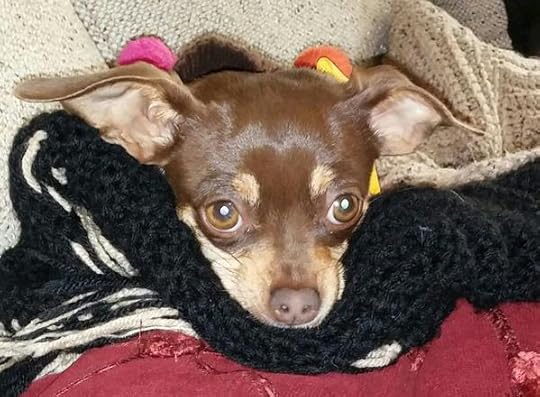 http://t.co/WdFSglA5XO Dec 07, 2014
http://t.co/WdFSglA5XO Dec 07, 2014
 I miss you. http://t.co/XVLoXz4Ybj Dec 06, 2014
I miss you. http://t.co/XVLoXz4Ybj Dec 06, 2014

 Puppy has a new collar that makes her look like the gift she is. http://t.co/QJGQixzciH Dec 06, 2014
Puppy has a new collar that makes her look like the gift she is. http://t.co/QJGQixzciH Dec 06, 2014

 *snicker* http://t.co/VLttoKLVeU Dec 05, 2014
*snicker* http://t.co/VLttoKLVeU Dec 05, 2014
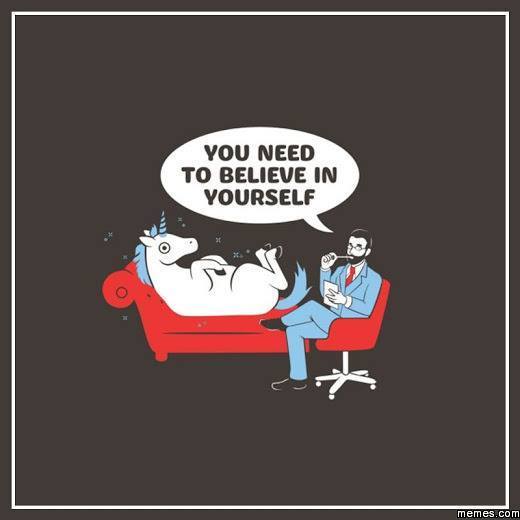
 If it meant there was a Diet Coke at the end of it, I'd endure the pain. Two weeks without, y'all. http://t.co/BoZow93M5E Dec 03, 2014
If it meant there was a Diet Coke at the end of it, I'd endure the pain. Two weeks without, y'all. http://t.co/BoZow93M5E Dec 03, 2014

 It's (re)release day! A combined volume of In Another Life and Eight Days is available for $3.99. http://t.co/s7eR3PzuZo Dec 03, 2014
It's (re)release day! A combined volume of In Another Life and Eight Days is available for $3.99. http://t.co/s7eR3PzuZo Dec 03, 2014
 Got spam email from a new "friend" asking only for a response. I'm tempted to respond just to see her goal because I can't figure it out! Dec 02, 2014
Got spam email from a new "friend" asking only for a response. I'm tempted to respond just to see her goal because I can't figure it out! Dec 02, 2014
 This puppy makes mine feel underdressed. http://t.co/WuW9PwdCTT
This puppy makes mine feel underdressed. http://t.co/WuW9PwdCTT
 Nov 29, 2014
Nov 29, 2014
 Inspiring view. http://t.co/ueIQlOtsSM
Inspiring view. http://t.co/ueIQlOtsSM
 Nov 29, 2014
Nov 29, 2014
 Tonight's story inspiration: guy who won't turn his head yet sits beside - not across - his date & talks to empty space instead of her. Nov 29, 2014
Tonight's story inspiration: guy who won't turn his head yet sits beside - not across - his date & talks to empty space instead of her. Nov 29, 2014
 http://t.co/H3OZPsMoKo Nov 27, 2014
http://t.co/H3OZPsMoKo Nov 27, 2014

 This afternoon's writing view is really special. http://t.co/HQqsH
This afternoon's writing view is really special. http://t.co/HQqsH
 3Im2q Nov 27, 2014
3Im2q Nov 27, 2014
 I win the creepy day contest, right? http://t.co/Fj7l9DYblP Nov 26, 2014
I win the creepy day contest, right? http://t.co/Fj7l9DYblP Nov 26, 2014
 This is so true: http://t.co/DrDVY0FFJ9. Not that I'll ever get to taste it again. *sigh* Nov 25, 2014
This is so true: http://t.co/DrDVY0FFJ9. Not that I'll ever get to taste it again. *sigh* Nov 25, 2014
 I miss it. http://t.co/GjM9VwnhD7 Nov 23, 2014
I miss it. http://t.co/GjM9VwnhD7 Nov 23, 2014
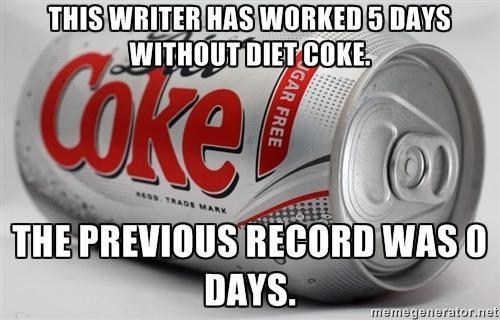
 Continuing the fire theme. http://t.co/BkDg2qyo75 Nov 23, 2014
Continuing the fire theme. http://t.co/BkDg2qyo75 Nov 23, 2014
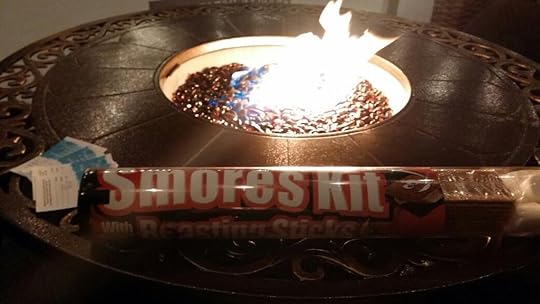
 Flaming coffee. http://t.co/j3afDGI3Uf Nov 23, 2014
Flaming coffee. http://t.co/j3afDGI3Uf Nov 23, 2014

 As if my comma-where-a-space-bar-should-be phone isn't annoying enough, friends are mocking me by responding to texts like this: ",yes,". Nov 23, 2014
As if my comma-where-a-space-bar-should-be phone isn't annoying enough, friends are mocking me by responding to texts like this: ",yes,". Nov 23, 2014
 Today's cute: My puppy likes to be on whatever is the tallest surface. like the top of a stack of pillows. Or laundry. Nov 20, 2014
Today's cute: My puppy likes to be on whatever is the tallest surface. like the top of a stack of pillows. Or laundry. Nov 20, 2014
 Bringing my own reading material to today's appointment. http://t.co/1xo1SXgNqE Nov 20, 2014
Bringing my own reading material to today's appointment. http://t.co/1xo1SXgNqE Nov 20, 2014
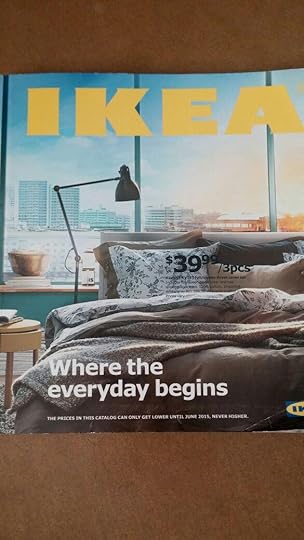
 http://t.co/jlkQICUnWn Nov 19, 2014
http://t.co/jlkQICUnWn Nov 19, 2014
 Doctor said to stop drinking Diet Coke. I'm going to miss you guys Nov 19, 2014
Doctor said to stop drinking Diet Coke. I'm going to miss you guys Nov 19, 2014
 Dr's faucet hands-free faucet doesn't wk. Waved hands, got closer & further & all I got was 1 second splash. Now have soap-sticky palms. Nov 19, 2014
Dr's faucet hands-free faucet doesn't wk. Waved hands, got closer & further & all I got was 1 second splash. Now have soap-sticky palms. Nov 19, 2014
 Apparently the joke about old magazines in doctors' waiting rooms also applies to TV - Lucille Ball is on. Or else I'm in a time warp. Nov 19, 2014
Apparently the joke about old magazines in doctors' waiting rooms also applies to TV - Lucille Ball is on. Or else I'm in a time warp. Nov 19, 2014
 Priorities: I delay things so I don't have to move laptop, disturb puppy, get up (e.g. bathroom break). What I can't delay is Diet Coke. Nov 18, 2014
Priorities: I delay things so I don't have to move laptop, disturb puppy, get up (e.g. bathroom break). What I can't delay is Diet Coke. Nov 18, 2014
 I'm not usually one to post this kind of thing, but for some reason, this one was really meaningful today. <3 http://t.co/nPnVPGhPOD Nov 18, 2014
I'm not usually one to post this kind of thing, but for some reason, this one was really meaningful today. <3 http://t.co/nPnVPGhPOD Nov 18, 2014
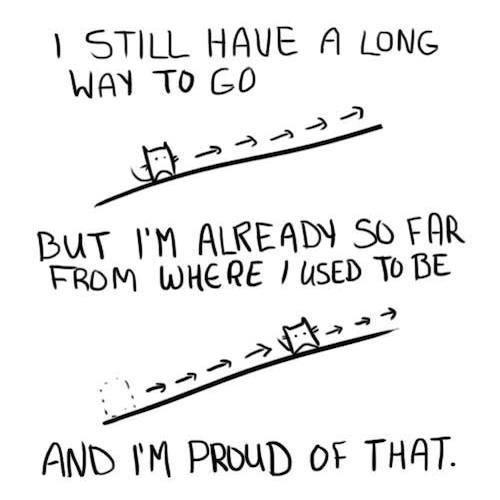
 Are you dying? Because I'm dying. http://t.co/s491fsCPeA Nov 18, 2014
Are you dying? Because I'm dying. http://t.co/s491fsCPeA Nov 18, 2014

 You. Guys. I signed up for Scribd thinking they had a great gay romance collection. Then today, I saw this: http://t.co/QrrRY56tR2!!! Nov 18, 2014
You. Guys. I signed up for Scribd thinking they had a great gay romance collection. Then today, I saw this: http://t.co/QrrRY56tR2!!! Nov 18, 2014
 Things I admire about the dude who wrote this: his organizational skills (subparts are good). End list. http://t.co/SNNmvFXdhl Nov 17, 2014
Things I admire about the dude who wrote this: his organizational skills (subparts are good). End list. http://t.co/SNNmvFXdhl Nov 17, 2014
 So I thought I was having a bad stressful day. It turns out I was wrong, y'all. Context is everything: http://t.co/ddhsJWzqIC. Nov 15, 2014
So I thought I was having a bad stressful day. It turns out I was wrong, y'all. Context is everything: http://t.co/ddhsJWzqIC. Nov 15, 2014
 I miss Karen Walker, you guys. http://t.co/ohsz7B80Lc Nov 14, 2014
I miss Karen Walker, you guys. http://t.co/ohsz7B80Lc Nov 14, 2014
 My friend's tomato is not happy this morning. http://t.co/ASIK1cKdDg Nov 14, 2014
My friend's tomato is not happy this morning. http://t.co/ASIK1cKdDg Nov 14, 2014

 Listen to the racy sample of McFarland's Farm audio http://t.co/btj4tCXZnM #mm #audiobook Nov 13, 2014
Listen to the racy sample of McFarland's Farm audio http://t.co/btj4tCXZnM #mm #audiobook Nov 13, 2014
 Nobody is allowed to say people IRL aren't as stupid as romance novel characters & I need a @BuzzFeed intervention http://t.co/r9zffK6F5k Nov 13, 2014
Nobody is allowed to say people IRL aren't as stupid as romance novel characters & I need a @BuzzFeed intervention http://t.co/r9zffK6F5k Nov 13, 2014
 I need a block for my computer to keep me from reading @BuzzFeed because I have neither time nor, apparently, self-control. Nov 13, 2014
I need a block for my computer to keep me from reading @BuzzFeed because I have neither time nor, apparently, self-control. Nov 13, 2014
 Sitting on the couch typing, surrounded by blankets, pillows, & dog beds for puppy. She is, of course, lying across my arm instead. Nov 11, 2014
Sitting on the couch typing, surrounded by blankets, pillows, & dog beds for puppy. She is, of course, lying across my arm instead. Nov 11, 2014
 Does your job ever feel like this? http://t.co/ejRmoYL7nZ Nov 11, 2014
Does your job ever feel like this? http://t.co/ejRmoYL7nZ Nov 11, 2014
 Brings me to tears every time I read it. http://t.co/Pb8fCoqi0y Nov 10, 2014
Brings me to tears every time I read it. http://t.co/Pb8fCoqi0y Nov 10, 2014
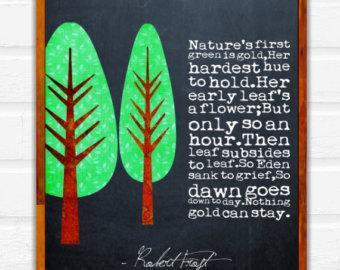
 I wish McDonald's delivered Diet Coke. Nov 10, 2014
I wish McDonald's delivered Diet Coke. Nov 10, 2014
 The background music at the restaurant was an elevator-style remake of Blister in the Sun. Are we okay w/ this happening to the Femmes? Nov 07, 2014
The background music at the restaurant was an elevator-style remake of Blister in the Sun. Are we okay w/ this happening to the Femmes? Nov 07, 2014
 Today's writing challenge (for the vegetarian author): describing the experience of eating a rare, juicy steak like it's a good thing. Nov 06, 2014
Today's writing challenge (for the vegetarian author): describing the experience of eating a rare, juicy steak like it's a good thing. Nov 06, 2014
 I love a good punny in the morning! http://t.co/v0EtkUYtyF Nov 04, 2014
I love a good punny in the morning! http://t.co/v0EtkUYtyF Nov 04, 2014
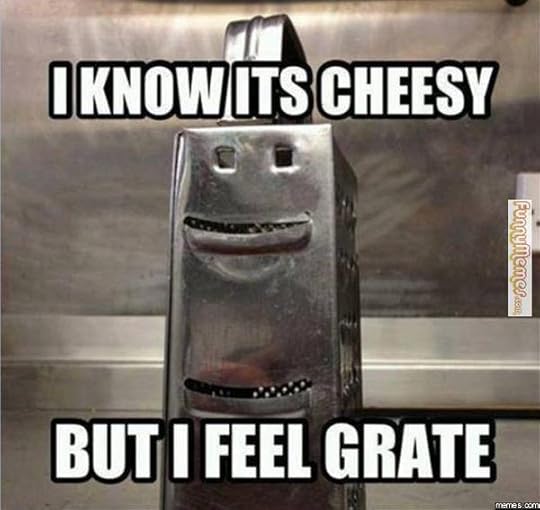
 Laughed so hard I had a coughing fit. Who's brave enough to share their version? http://t.co/xdt0TbkDnL Nov 02, 2014
Laughed so hard I had a coughing fit. Who's brave enough to share their version? http://t.co/xdt0TbkDnL Nov 02, 2014

 Me: "Can I please have a refill?" Waitress: "Regular or decaf?" Me: "Hahaha!" Her: "I know." *Shaking head and pouring* "Some people!" Nov 02, 2014
Me: "Can I please have a refill?" Waitress: "Regular or decaf?" Me: "Hahaha!" Her: "I know." *Shaking head and pouring* "Some people!" Nov 02, 2014
 When explaining how your snuggly puppy is wrapped in your shirt, don't forget the R. It's the key difference between "awww" and "ewww". Nov 01, 2014
When explaining how your snuggly puppy is wrapped in your shirt, don't forget the R. It's the key difference between "awww" and "ewww". Nov 01, 2014
 How to know you're tired: hitting the shift key to make a capital letter seems like too much work. Oct 30, 2014
How to know you're tired: hitting the shift key to make a capital letter seems like too much work. Oct 30, 2014
 My puppy sleeps like a person. She is on her side with her head on the pillow. http://t.co/EApUyZcMaU Oct 29, 2014
My puppy sleeps like a person. She is on her side with her head on the pillow. http://t.co/EApUyZcMaU Oct 29, 2014

 Was scheduling a meeting via text for 5:15 & got a response asking if I mean a.m. or p.m. What kind of maniac do they take me for? Oct 28, 2014
Was scheduling a meeting via text for 5:15 & got a response asking if I mean a.m. or p.m. What kind of maniac do they take me for? Oct 28, 2014
 My friend just picked this from the garden. No joke. http://t.co/LegxzqQtRF Oct 25, 2014
My friend just picked this from the garden. No joke. http://t.co/LegxzqQtRF Oct 25, 2014

 This is really neat. I had no idea what it was until the very end! http://t.co/lR8coZYXxM Oct 25, 2014
This is really neat. I had no idea what it was until the very end! http://t.co/lR8coZYXxM Oct 25, 2014
 I have to write blog posts. I'm terrible at writing blog posts. @renaekkaye, do you think anyone will notice if you write them for me? Oct 24, 2014
I have to write blog posts. I'm terrible at writing blog posts. @renaekkaye, do you think anyone will notice if you write them for me? Oct 24, 2014
 Okay. Everyone can pack it up for the day. This wins the internet. Start at 2:10 and prepare to die. http://t.co/RrlIjN1QwC Oct 24, 2014
Okay. Everyone can pack it up for the day. This wins the internet. Start at 2:10 and prepare to die. http://t.co/RrlIjN1QwC Oct 24, 2014
 Naptime. http://t.co/qO8jd7qwVs Oct 22, 2014
Naptime. http://t.co/qO8jd7qwVs Oct 22, 2014
 Dear Jack In the Box iced coffee: I love you. Oct 21, 2014
Dear Jack In the Box iced coffee: I love you. Oct 21, 2014
 I talk abt youth and perspective at @QueerRomance today http://t.co/sh9aHriN2w Oct 21, 2014
I talk abt youth and perspective at @QueerRomance today http://t.co/sh9aHriN2w Oct 21, 2014
 Look at the sexy teasers @Surrendertobook made for The Half of Us! http://t.co/z1ljA9as6T Oct 19, 2014
Look at the sexy teasers @Surrendertobook made for The Half of Us! http://t.co/z1ljA9as6T Oct 19, 2014
 I want to be the kind of person who can put this in the bathroom & have it look pretty plus be fully functional: http://t.co/jyKvfzoTwG. Oct 19, 2014
I want to be the kind of person who can put this in the bathroom & have it look pretty plus be fully functional: http://t.co/jyKvfzoTwG. Oct 19, 2014

 Anyone known where I can get Diet Coke with the, uh, extra ingredient that makes this happen? http://t.co/o3w8Lh7Gld Oct 17, 2014
Anyone known where I can get Diet Coke with the, uh, extra ingredient that makes this happen? http://t.co/o3w8Lh7Gld Oct 17, 2014
 Still feeling punny. Also, cheese because ... cheese. http://t.co/dX8QJN3GFo Oct 17, 2014
Still feeling punny. Also, cheese because ... cheese. http://t.co/dX8QJN3GFo Oct 17, 2014

 Today is a day that calls for puns. http://t.co/778idrF7P7 Oct 16, 2014
Today is a day that calls for puns. http://t.co/778idrF7P7 Oct 16, 2014
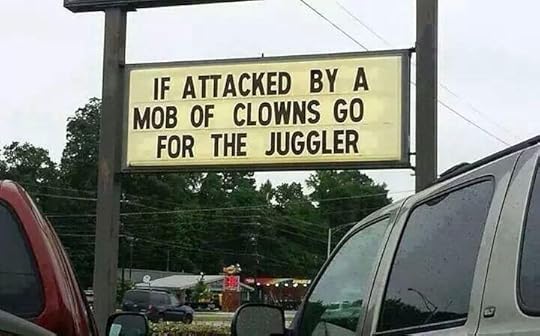
 My morning today: http://t.co/SJQLxMOOKR. Oct 15, 2014
My morning today: http://t.co/SJQLxMOOKR. Oct 15, 2014
 Organize? Totally. Clean? Not so much. http://t.co/0pBSrcpWq0 Oct 15, 2014
Organize? Totally. Clean? Not so much. http://t.co/0pBSrcpWq0 Oct 15, 2014
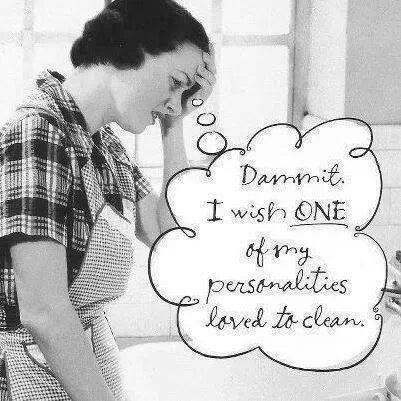
 I love glass gourd season! http://t.co/8TRoJvcgsf Oct 13, 2014
I love glass gourd season! http://t.co/8TRoJvcgsf Oct 13, 2014

 Bonnie & Boonie are not the same word. 1 is a lovely name & the other sounds insulting. Don't ask what raised this. I'm trying to forget. Oct 10, 2014
Bonnie & Boonie are not the same word. 1 is a lovely name & the other sounds insulting. Don't ask what raised this. I'm trying to forget. Oct 10, 2014
 Stay thirsty, you guys. http://t.co/6EHPQq07mr Oct 09, 2014
Stay thirsty, you guys. http://t.co/6EHPQq07mr Oct 09, 2014

 Jason in The Half of Us has a little trick to take his mind off annoying things, like conversations. I might too. http://t.co/7Yg1bPie6a Oct 09, 2014
Jason in The Half of Us has a little trick to take his mind off annoying things, like conversations. I might too. http://t.co/7Yg1bPie6a Oct 09, 2014
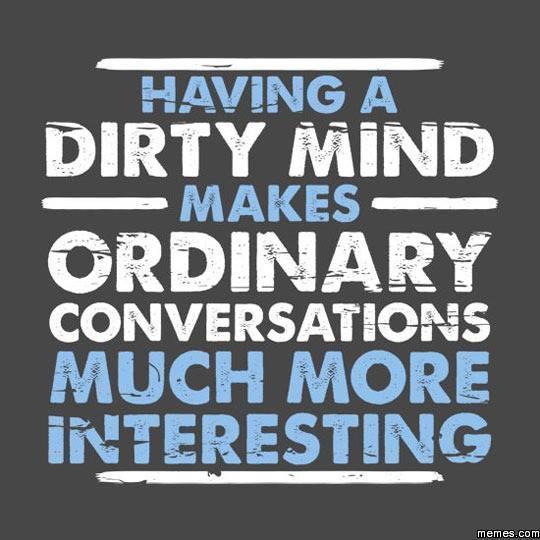
 Hottest #TeaserTuesday images ever from @ontopdownunder1. Giveaway too but those teasers. Look. Seriously. Look. http://t.co/elRxOa8xdZ Oct 08, 2014
Hottest #TeaserTuesday images ever from @ontopdownunder1. Giveaway too but those teasers. Look. Seriously. Look. http://t.co/elRxOa8xdZ Oct 08, 2014
 Morning project: get rid of adware infesting my computer but not showing up on scans. Grrr. Oct 07, 2014
Morning project: get rid of adware infesting my computer but not showing up on scans. Grrr. Oct 07, 2014
 So, I went to get a coffee and ... this. http://t.co/P9L303ClkT Oct 07, 2014
So, I went to get a coffee and ... this. http://t.co/P9L303ClkT Oct 07, 2014

 As if to mock me for not using enough commas in my writing, my phone's comma is so close to the space bar I put a comma between every word. Oct 06, 2014
As if to mock me for not using enough commas in my writing, my phone's comma is so close to the space bar I put a comma between every word. Oct 06, 2014
 Good news this morning. It'll be great news soon. And then one day, it won't be news at all. It'll just be life. http://t.co/yBdz9nt29v Oct 06, 2014
Good news this morning. It'll be great news soon. And then one day, it won't be news at all. It'll just be life. http://t.co/yBdz9nt29v Oct 06, 2014
 If there's anyone happier than my puppy when she's going for a run, I haven't seen it. Haven't seen anything cuter either. Oct 06, 2014
If there's anyone happier than my puppy when she's going for a run, I haven't seen it. Haven't seen anything cuter either. Oct 06, 2014
 Is it mean to laugh? Because I can't stop. I can't. http://t.co/G3HCXdqKfl Oct 03, 2014
Is it mean to laugh? Because I can't stop. I can't. http://t.co/G3HCXdqKfl Oct 03, 2014
 Writer friends: the talented @bookidentity now does book design. I work w/Kelly on my website and bks and just love! http://t.co/tVlinVrq4q Oct 02, 2014
Writer friends: the talented @bookidentity now does book design. I work w/Kelly on my website and bks and just love! http://t.co/tVlinVrq4q Oct 02, 2014
 I know, you guys. I know. But I can't help myself. It's my evil side coming out. http://t.co/RNIHlOrDFT Oct 02, 2014
I know, you guys. I know. But I can't help myself. It's my evil side coming out. http://t.co/RNIHlOrDFT Oct 02, 2014
 My puppy is wagging her tail in her sleep. I had no idea dogs did this. It's adorable. Oct 01, 2014
My puppy is wagging her tail in her sleep. I had no idea dogs did this. It's adorable. Oct 01, 2014
 Love the voices in my head. http://t.co/Jme38BDIiw Sep 30, 2014
Love the voices in my head. http://t.co/Jme38BDIiw Sep 30, 2014
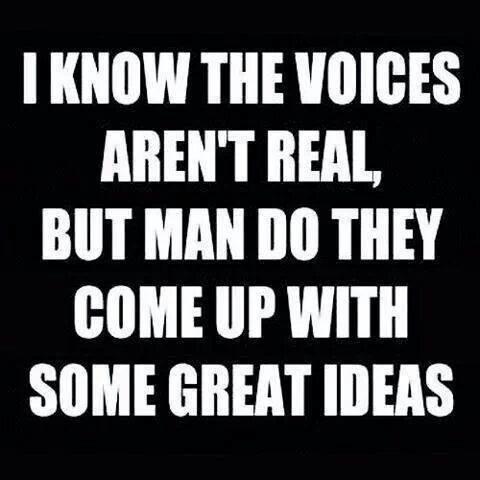
 Update (2/2): She's laying on her back w/ her feet in the air like she's trying to get the spaghetti into her Fallopian tubes. Sep 30, 2014
Update (2/2): She's laying on her back w/ her feet in the air like she's trying to get the spaghetti into her Fallopian tubes. Sep 30, 2014
 Update (1/2): They're done. He's washing the dishes. Sep 30, 2014
Update (1/2): They're done. He's washing the dishes. Sep 30, 2014
 Update - new text: But wouldn't you be like "ok. Enough spaghetti. Let's fuck" after like 30-45 seconds? Sep 30, 2014
Update - new text: But wouldn't you be like "ok. Enough spaghetti. Let's fuck" after like 30-45 seconds? Sep 30, 2014
 (2/2) They literally are sitting on their sofa both in their underwear the woman totally topless, eating spaghetti. Sep 30, 2014
(2/2) They literally are sitting on their sofa both in their underwear the woman totally topless, eating spaghetti. Sep 30, 2014
 (1/2) Text from friend in NY hotel rm: There is a straight couple across the st w/ their blinds open. Sep 30, 2014
(1/2) Text from friend in NY hotel rm: There is a straight couple across the st w/ their blinds open. Sep 30, 2014
 I'm thinking of getting a new kindle. Mine is an original & now there are many different ones. Which Kindle do you have/recommend & why? Sep 29, 2014
I'm thinking of getting a new kindle. Mine is an original & now there are many different ones. Which Kindle do you have/recommend & why? Sep 29, 2014
 I just cleaned out all my email in-boxes. I feel so fresh. *Ahhhhh* Sep 26, 2014
I just cleaned out all my email in-boxes. I feel so fresh. *Ahhhhh* Sep 26, 2014
 "We'll switch marital partners more frequently in our lifetimes than we will banks." Thoughts? I've had the same bank acct for 24 yrs. Sep 25, 2014
"We'll switch marital partners more frequently in our lifetimes than we will banks." Thoughts? I've had the same bank acct for 24 yrs. Sep 25, 2014
 Or in my case, caffeine. Like a 100% chance. http://t.co/6bXDKKAdua Sep 24, 2014
Or in my case, caffeine. Like a 100% chance. http://t.co/6bXDKKAdua Sep 24, 2014

 BWAHAHAHAHAHA! - "Couscous, Skittles?" http://t.co/3NjsBa6Ogs Sep 23, 2014
BWAHAHAHAHAHA! - "Couscous, Skittles?" http://t.co/3NjsBa6Ogs Sep 23, 2014
 Have a great week.
Have a great week.CCwww.cardenoc.com
December 13, 2014
We're all different, and that's okay by Renae Kaye
I was saddened and infinitely grieved. Although a few of my sisters will be horrified by this thought, the truth is for me, by the time he died, I’d already done my mourning. It was just a matter of closing the final chapter of the book.
In the end, I was actually away on holidays when my sister called me and said, “The doctors are saying 24 hours. Are you going to come home early?” I hung up in shock and discussed it with my husband. The airline only had two seats left, and there were four of us. I couldn’t leave my husband with the two kids. Apart from the fact my 2yo was suffering from extreme separation anxiety, my husband was my support system. I rang my sister back and told her I was not cutting my holiday short. I’d already said all my goodbyes, and Dad would understand.
Dad, however, was a fighter. 50 hours later, when my flight came in, he was still hanging on. Two days later he finally went. I was there in the end.
The psychologists tell us there are five stages of grief: denial, anger, bargaining, depression, acceptance.
I agree and think that I moved through them all before he died.
People would often say to me, when they heard that my dad was terminal, “At least you got to say goodbye. It is better than the sudden death.” I nodded and believed them, as I didn’t have anything to compare it to.
28 days after Dad died, my youngest nephew was killed in a tragic accident.
Those stages of grief were once again passed through – and I spent a lot of time asking why? Why did this terrible thing have to happen to such a little boy who never did anything wrong?
I now had something to compare – was the long drawn out goodbye harder? Or the short and unexpected death?
Emotionally, the years of grief I experienced with Dad was huge, compared to the shock of my nephew’s death. Yes, I got to say goodbye with Dad, but with a tragic accident, you’re often left wondering, “if only…”
The same emotions (5 stages of grief) are experienced with a wide variety of losses.
Wikipedia says, “Kübler-Ross originally developed this model based on her observations of people suffering from terminal illness. She later expanded her theory to apply to any form of catastrophic personal loss, such as the death of a loved one, the loss of a job or income, major rejection, the end of a relationship or divorce, drug addiction, incarceration, the onset of a disease or chronic illness, an infertility diagnosis, as well as many tragedies and disasters (and even minor losses).”
I think this is very true. Recently a close social media friend suddenly and unexpectedly cut off all communication with me. I was left with no explanation, no warning, no nothing. Just up and gone one day – unfriended and blocked. Rather like an unexpected death, this was an unforeseen death of our friendship. Even worse, this was a suicide, with me left wondering if I could’ve done something to prevent this? Were there warning signs I missed? Could this person at least left me a note of explanation? Or maybe, just maybe, if this person had thought to talk to someone, this drastic action could’ve been avoided?
At first I couldn’t believe it. I checked again and again (stage one of grief). Then I got angry (stage two of grief). I stormed outside and did something else away from the computer while I seethed and thought bad things about this person. I plotted revenge, planned awful deeds and was a generally bad person. Then I calmed down some. Maybe it was a mistake? (stage 3) I’ll check the computer again…
By the time my husband came home, I was in depression (stage 4). I cried to him, wailing that I didn’t know what was wrong, why this happened, and was I really such a bad person? Some five hours after I found out about the death of our friendship, I was accepting it. Sometimes people just don’t see eye-to-eye. Even though I was still completely confused about the why, I realised that some people don’t treat the bonds of friendship the same way I do.
And that’s okay. Because we’re all different. Lesson learned, Renae. Move along. Acceptance (stage 5).
The moral of the story has to do with reviews – the bond that connects authors and readers. This bond has two ends – with the author on one end, and the reader on the other. This is a symbiotic bond, as one cannot exist without the other.
The bond between the two is sometimes thick, sometimes weak. Sometimes there is miscommunication along the bond. Sometimes the reader doesn’t get the story. Sometimes the author is offended by the review. And a bad read and a bad review can sever the bond, leaving both parties with a grieving process.
Writing a bad review, and getting a bad review, will leave both ends of the bond with 5 stages to work through: Disbelief, anger, bargaining, depression, acceptance.
To a reader, I will ask you to stop before you pen a bad review. I’ve read negative reviews (both of my books, and of others) and can tell that some readers are still at stage one of disbelief (I can’t believe this book was not as good as the one before!), some are at stage two (I hated that the character was treated this way), while some are all the way to stage three (I’m returning this book because I really can’t believe it was this bad). To a reader who has read a book that doesn’t agree with them, I always want to ask them why? Was it because the book didn’t turn out like you wanted expected (ie the plot line was different)? Was it the editing? Or was it truthfully a bad book?
Look – I’m not saying don’twrite a bad review. It’s a reader’s right, after all, and I am completely respectful of that. All I’m suggesting is write the review once you’ve thought about it. I like to read reviews that have full explanations for why the reader didn’t enjoy the book. I’m a reader too, and often I want to know from a review, was it something so terrible with the book? Or was it that the reader doesn’t like characters who cheat, and this book had an unfaithful partner? Was there a negative aspect that will trip me up too (I hate cliff-hangers!) or will it be something I can forgive as a character flaw?
To an author reading a bad review, you will go through the five stages of grief too. (How dare they write this? They’re just idiots. If only I’d rewritten that phrase. I’m just a bad, bad writer.) The first four stages, summed up in four lines. It’s okay to feel like this. But it’s not okay to act on it. It’s when we act in anger that all sorts of repercussions hit.
To both the reader and the author, I have this piece of advice – take a step back and remember we are all different. It’s okay to have a difference of opinion. Be angry, be sad. But be accepting of each other before you act.
Because tonight I sit here still grieving (although accepting) the loss of a wonderful father. I still grieve and only occasionally ask why? when I think about a child’s life taken from our family in such tragic circumstances. But it’s the friend I grieve (although accept) that I regret. Because what was done in anger or impetuousness, cannot be undone. However, perhaps it could’ve been prevented if that one person could’ve stopped, taken a step back and remembered: we are all different – and that’s okay.
How to contact Renae:Email: renaekaye@iinet.net.auWebsite: www.renaekaye.weebly.comFB: www.facebook.com/renae.kaye.9Twitter: @renaekkaye
We're all different, and that's okay
I was saddened and infinitely grieved. Although a few of my sisters will be horrified by this thought, the truth is for me, by the time he died, I’d already done my mourning. It was just a matter of closing the final chapter of the book.
In the end, I was actually away on holidays when my sister called me and said, “The doctors are saying 24 hours. Are you going to come home early?” I hung up in shock and discussed it with my husband. The airline only had two seats left, and there were four of us. I couldn’t leave my husband with the two kids. Apart from the fact my 2yo was suffering from extreme separation anxiety, my husband was my support system. I rang my sister back and told her I was not cutting my holiday short. I’d already said all my goodbyes, and Dad would understand.
Dad, however, was a fighter. 50 hours later, when my flight came in, he was still hanging on. Two days later he finally went. I was there in the end.
The psychologists tell us there are five stages of grief: denial, anger, bargaining, depression, acceptance.
I agree and think that I moved through them all before he died.
People would often say to me, when they heard that my dad was terminal, “At least you got to say goodbye. It is better than the sudden death.” I nodded and believed them, as I didn’t have anything to compare it to.
28 days after Dad died, my youngest nephew was killed in a tragic accident.
Those stages of grief were once again passed through – and I spent a lot of time asking why? Why did this terrible thing have to happen to such a little boy who never did anything wrong?
I now had something to compare – was the long drawn out goodbye harder? Or the short and unexpected death?
Emotionally, the years of grief I experienced with Dad was huge, compared to the shock of my nephew’s death. Yes, I got to say goodbye with Dad, but with a tragic accident, you’re often left wondering, “if only…”
The same emotions (5 stages of grief) are experienced with a wide variety of losses.
Wikipedia says, “Kübler-Ross originally developed this model based on her observations of people suffering from terminal illness. She later expanded her theory to apply to any form of catastrophic personal loss, such as the death of a loved one, the loss of a job or income, major rejection, the end of a relationship or divorce, drug addiction, incarceration, the onset of a disease or chronic illness, an infertility diagnosis, as well as many tragedies and disasters (and even minor losses).”
I think this is very true. Recently a close social media friend suddenly and unexpectedly cut off all communication with me. I was left with no explanation, no warning, no nothing. Just up and gone one day – unfriended and blocked. Rather like an unexpected death, this was an unforeseen death of our friendship. Even worse, this was a suicide, with me left wondering if I could’ve done something to prevent this? Were there warning signs I missed? Could this person at least left me a note of explanation? Or maybe, just maybe, if this person had thought to talk to someone, this drastic action could’ve been avoided?
At first I couldn’t believe it. I checked again and again (stage one of grief). Then I got angry (stage two of grief). I stormed outside and did something else away from the computer while I seethed and thought bad things about this person. I plotted revenge, planned awful deeds and was a generally bad person. Then I calmed down some. Maybe it was a mistake? (stage 3) I’ll check the computer again…
By the time my husband came home, I was in depression (stage 4). I cried to him, wailing that I didn’t know what was wrong, why this happened, and was I really such a bad person? Some five hours after I found out about the death of our friendship, I was accepting it. Sometimes people just don’t see eye-to-eye. Even though I was still completely confused about the why, I realised that some people don’t treat the bonds of friendship the same way I do.
And that’s okay. Because we’re all different. Lesson learned, Renae. Move along. Acceptance (stage 5).
The moral of the story has to do with reviews – the bond that connects authors and readers. This bond has two ends – with the author on one end, and the reader on the other. This is a symbiotic bond, as one cannot exist without the other.
The bond between the two is sometimes thick, sometimes weak. Sometimes there is miscommunication along the bond. Sometimes the reader doesn’t get the story. Sometimes the author is offended by the review. And a bad read and a bad review can sever the bond, leaving both parties with a grieving process.
Writing a bad review, and getting a bad review, will leave both ends of the bond with 5 stages to work through: Disbelief, anger, bargaining, depression, acceptance.
To a reader, I will ask you to stop before you pen a bad review. I’ve read negative reviews (both of my books, and of others) and can tell that some readers are still at stage one of disbelief (I can’t believe this book was not as good as the one before!), some are at stage two (I hated that the character was treated this way), while some are all the way to stage three (I’m returning this book because I really can’t believe it was this bad). To a reader who has read a book that doesn’t agree with them, I always want to ask them why? Was it because the book didn’t turn out like you wanted expected (ie the plot line was different)? Was it the editing? Or was it truthfully a bad book?
Look – I’m not saying don’twrite a bad review. It’s a reader’s right, after all, and I am completely respectful of that. All I’m suggesting is write the review once you’ve thought about it. I like to read reviews that have full explanations for why the reader didn’t enjoy the book. I’m a reader too, and often I want to know from a review, was it something so terrible with the book? Or was it that the reader doesn’t like characters who cheat, and this book had an unfaithful partner? Was there a negative aspect that will trip me up too (I hate cliff-hangers!) or will it be something I can forgive as a character flaw?
To an author reading a bad review, you will go through the five stages of grief too. (How dare they write this? They’re just idiots. If only I’d rewritten that phrase. I’m just a bad, bad writer.) The first four stages, summed up in four lines. It’s okay to feel like this. But it’s not okay to act on it. It’s when we act in anger that all sorts of repercussions hit.
To both the reader and the author, I have this piece of advice – take a step back and remember we are all different. It’s okay to have a difference of opinion. Be angry, be sad. But be accepting of each other before you act.
Because tonight I sit here still grieving (although accepting) the loss of a wonderful father. I still grieve and only occasionally ask why? when I think about a child’s life taken from our family in such tragic circumstances. But it’s the friend I grieve (although accept) that I regret. Because what was done in anger or impetuousness, cannot be undone. However, perhaps it could’ve been prevented if that one person could’ve stopped, taken a step back and remembered: we are all different – and that’s okay.
How to contact Renae:Email: renaekaye@iinet.net.auWebsite: www.renaekaye.weebly.comFB: www.facebook.com/renae.kaye.9Twitter: @renaekkaye
December 10, 2014
Ask Andrew - The Return
After a few weeks of vacation and recovery, I have wanted to return to my Ask Andrew posts, but alas, I have no questions to answer. So I am asking you to please send your questions for me to andrewgreybooks@comcast.net so that next week I can get back to answering your questions about writing, sex, gay life, butt sex, :) or anything ask you may wonder.
In the mean time I hope all of you have a wonderful week and a great holiday season!
Hugs and Love
Andrew
 Ask Andrew is your chance to ask questions of a gay romance author. The questions can be about the writing process in general, writing sex scenes, gay men, sex, characters in romance, characters having sex... okay you probably get the picture. I promise to answer your questions as frankly and with as much humor as I possibly can.
Ask Andrew is your chance to ask questions of a gay romance author. The questions can be about the writing process in general, writing sex scenes, gay men, sex, characters in romance, characters having sex... okay you probably get the picture. I promise to answer your questions as frankly and with as much humor as I possibly can.So if you have a question, please send it to andrewgreybooks@comcast.net. This is different from my usual email so your questions don't get lost. I will answer one question a week.
Please remember this is meant to be all in fun. (I was going to say good, clean fun, but who wants that.) So send me your questions and let's see what mischief we can get into.
Visit Andrew on Facebook: https://www.facebook.com/andrewgreybooks and you can join Andrew's fan group All The Way With Andrew Grey.
Follow him on Twitter: @andrewgreybooks
Visit Andrew's web site: www,andrewgreybooks.com
December 9, 2014
Our Goodbye Song for Sean
(sung to the tune of Auld Lang Syne)
For lest our smutster be forgot
And never brought to mind
For kokopelli and horseshoe crabs
And all the booze we find.
Chorus:
For fisting, nipple clamps, and plugs
For gay erotic smut
We’ll miss you, Sean, until next year
Love Julia and me!
Sean loves food and hanging lights
And learning New Mexico ways
And brussel sprouts and glazed pecans
And goofing off for days
Chorus:
For fisting, nipple clamps, and plugs
For gay erotic smut
We’ll miss you, Sean, until next year
Love Julia and me!
We’ve laughed until we peed ourselves
We’ve laughed until we cried
We showed you pics of vagazzling
Forget it? Yeah, you’ll try.
Chorus:
For fisting, nipple clamps, and plugs
For gay erotic smut
We’ll miss you, Sean, until next year
Love Julia and me!
We walked the dogs, we shopped a lot
We plotted til we died.
We talked of sex and love and plans.
Now it’s our turn to cry.
Chorus:
For fisting, nipple clamps, and plugs
For gay erotic smut
We’ll miss you, Sean, until next year
Love Julia and me!
We’ll see you our daily chats
We’ll work out all our schemes!
We’ll wait until November comes
Till then, it’s in our dreams!
Chorus:
For fisting, nipple clamps, and plugs
For gay erotic smut
We’ll miss you, Sean, until next year
Love Julia and me!
Love you, Sean!
BA and Julia
If you have a topic you’d like us to chat about, please let us know. We’re totally up for that. You can find us on Twitter at @seanmichael09, @juliatalbot and @batortuga. Sean’s website is http://www.seanmichaelwrites.comJulia’s is http://www.juliatalbot.comBA’s is http://www.batortuga.com Facebook:Sean -- https://www.facebook.com/SeanMichaelW... -- https://www.facebook.com/juliatalbota... -- https://www.facebook.com/batortuga Much love, y’all,BA
December 7, 2014
November by Cardeno C.
 Blue Mountain, the first book in my new wolf shifter standalone novella collection called Pack, was released.
Blue Mountain, the first book in my new wolf shifter standalone novella collection called Pack, was released.I finished a short novella called Jumping In for an All Romance ebooks February special thingy (that’s the technical term for it).
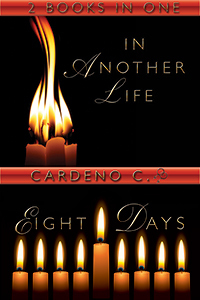 I re-released In Another Life & Eight Days, two novellas, in one package for only $3.99.
I re-released In Another Life & Eight Days, two novellas, in one package for only $3.99.I’m working on Johnnie, a novel-length paranormal in what’ll be my new Siphon world. (Yes, novel. I know I've had tons of novellas out lately but novels are coming!)
Have a great week.
CCwww.cardenoc.com
December 6, 2014
Tolerance by Renae Kaye
I would like to say I am not qualified in any way as a person to give another advice, but I just have my observations to go on. My feelings. My experiences.
One of the things I like to do in the quiet moments of my life – which usually occur in the shower, or as I’m trying to go to sleep – is to place myself in another person’s shoes. I often meet people whose ideas vary wildly from mine, and I try to work out why that it is.
Intelligence?
Genes?
Experience?
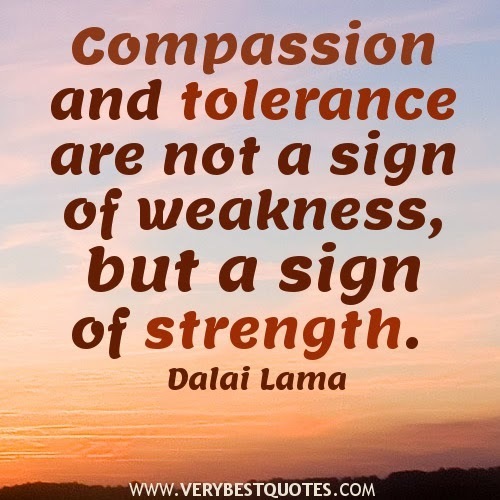
A combination of them all?
I’ve been thinking today about the word tolerance. I use this word to describe a person’s ability to accept that someone is different from them, and move on. The ability to understand that not all people are the same as them. The ability to love, like and get along with those who are different from them.
As a writer of m/m romance, I come up against this a lot. Homosexuality is one trigger point for intolerance in society. There are many people who simply accept that homosexuality exists, even though they have never experienced it. They are completely straight and have never personally felt a homosexual desire, but they accept that others may. They tolerate the thought, are not threatened by the idea, and they don’t really see what all the fuss is about. This is me.
Others are less tolerant: “It’s fine (to be gay) as long as I don’t have to see, hear or think about it. If you make me face it, I will be extremely uncomfortable and probably say something stupid and hurtful.”
Then you have the nutjobs who insist that it is an abomination and need to be stamped out.
Even in the world of homosexuality, you have the intolerance of other sexualities other than “gay” or “straight.” How many times have I heard of gay men insisting that there is no such this as “bisexuality”? I shake my head and wonder how they can make this claim. How do they know of another person’s attraction without being that person? I find this point of view rather narrow, and very condescending.
I recently met someone who identifies as pansexual. I admit it, I had to look it up, because I didn’t understand what she was meaning, but it doesn’t bother me one iota. I was a little shaken by the fact that this person needed to bring it up in our first conversation, but then some other person (more intelligent than I) pointed out that perhaps it’s easier to be upfront about these things from the get-go. If someone is going to reject you for your sexuality, it’s better to find out immediately, rather than after forging a friendship with them. In further conversations with my new friend, she spoke about being rejected by others in the LGBT society, because they didn’t believe that someone could be pansexual. I find this extremely sad.
But it is not only about sexualities that you encounter intolerance. Religion is another that I see on a daily basis on Facebook. You have those who wish to force their religion on you (who didn’t think of Jehovah Witnesses or Mormons then?). But on the flipside of this, you have those who wish to ridicule you for your religion. There is an intolerance that is rampant in accepting that someone may have a different faith to you. In my immediate social circle in Real Life, my closest friends are a Roman Catholic, an Anglican, an atheist and a Buddhist. It doesn’t bother me. I really wish it would stop bothering others.
[For the record, it is my understanding that JW’s and Mormons need to at least try to “convert” you as part of their religion. Be polite. Smile, say thank you for the consideration (as they’re really trying to save your soul), and take their handout. If you put it immediately in the bin, you’ve hurt no one.]
Last Sunday I was having a conversation with a friend who I find extremely hard to understand at times. She is extremely tolerant of many people who are different to her. Race, religion, disability, personality and background are things she barely flickers her eyelid at. But she nearly had a heart attack when I attempted to dry my hands on a tea towel after washing a few dishes.
“You can’t dry your hands on that towel!”
I froze. “Why not?”
“That’s the towel you’re about to dry the dishes with.”
“Yes,” I agreed. “I washed the cups with my bare hands. My hands are wet because I had them in the water to wash the cups. Now I need to dry the cups. So I need to dry my hands. Those same hands that washed the cup in the same water that they are wet from.”
But no. She insisted on her way. It seemed petty to me, and still does. But then again, this is the woman who got upset with me because I didn’t have decaf coffee in my house. I consider decaf one of the great abominations of the world. But she insisted with such vehemence, such horror that I didn’t have decaf for her when she came to visit, that I ended up spending $8 on a jar of the stuff. It’s still unopened in my cupboard even though I purchased it in June. I just (try to) shrug and accept that this is her.
Intolerance can be life threatening or petty.
So what makes some people tolerant, and some people not?
I consider myself extremely tolerant of things that people can’t change – their sexuality, their race, their disability – but I’m also a downright bitch of intolerance when it comes to things I consider people can change. My in-laws, for example, are constantly late. This is rude to me – just plain, old-fashioned rudeness. I don’t believe I should have to “put up with it” and I’m constantly griping and trying to change them. I’m the queen bee of intolerance when it is just laziness or selfishness.
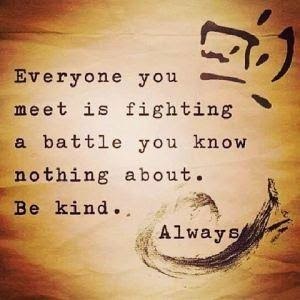
But where does this tolerance and intolerance in my life come from? Why am I so tolerant of homosexuality, gender, religion, race and background (some of society’s major trigger points) while others are still debating whether women should be allowed to vote?
Is it my personality? Is it my upbringing?
Well, I can scratch the last, that’s for sure. My parents have always been extremely critical and intolerant of minority groups. Racist comments were the norm, and I was raised to believe that most men were paedophiles who would do atrocious things to me should I leave my mother’s side. I was brought up to fear anyone who was different, and to not trust a single soul who I wasn’t related to. Although, I can only ever remember one homosexual comment from my parents, it was made clear that if you turned out to be “one of those” you were to be pitied and were on par with extreme intellectual disabilities – someone they hoped they never had to have as a grandchild.
So why did I not simply turn out like them? I was raised by them. I was subjected to years of their brainwashing. It’s obviously in my genes and in my home environment. Why don’t I call people names like my dad did? Why don’t I think that being gay is one of the worst afflictions a person can have?
I believe it is because of a simple trick my parents unconsciously taught me, a piece of parenting they did right. Question everything.
It started at a very young age. And all my brothers, sisters, nephews and nieces were raised in a similar manner.
The bluff.
My family are legendary at it. My son will come inside while I’m cooking dinner and say to me, “Where’s Daddy?”
With a straight face I will answer, “He decided that he hates spaghetti, so he’s gone to a restaurant for dinner.”
I will see my son’s eyes narrow as he assesses the situation. Does Daddy actually hate spaghetti? Would Daddy just get in the car and drive away? If Daddy is not driving to a restaurant, where would he be?
Finally he will answer, “No, he’s not. He just came home from work and he likes spaghetti.”
I will then say, “So, if Daddy has just arrived home from work, where do you think he will be?”
“In the bedroom, getting changed.”
“Great thought. Why don’t you go and look there?”
It’s simply how I was brought up. The bluff (which is really just a big lie) to make them stop and think. It was done to me. I do it to my kids. But I’ve become aware that not everyone bluffs their children like this. Am I weird?
My daughter’s Kindy teacher is amazed at how my daughter will think through complex situations, instead of just accepting the word of an adult. Apparently not all kids do.
So what does this have to do with tolerance?
It’s teaching our children the process of taking in the information around you and coming to your own decision. Question everything. Think for yourself. Decide for yourself where your beliefs are going to stand.
I’ve decided where I stand. I’ve reached a mature and well-thought out decision on where I believe the line is drawn. I’ve made a decision on my faith and how much matters like gay people getting married affect me. Then I rationally decide how much control people have over these things. Those issues that people cannot control – race, gender, sexual orientation? Well then I make a conscious choice to openly accept that people come in all shapes and sizes. Black, pink or rainbow. We’re all just born that way.
So next time you’re about to jump up and down about an issue, stop and think. Does it matter to me that this person goes to church every week? Does it impact on my life? Nope. Then fine, they’re allowed to have a different belief than mine. Does it matter to me that this person has black skin, when I have an odd pinky-yellow colour? Nope. Does it matter to me that this person says they’re transsexual? Does it matter to me that this person works for the Liberal party? Does it matter to me that this person only writes het-romance?
Then let it go.
Does it matter that this person sexually preys on children? If you (correctly!) answered: “Yes, I’ve thought this through logically, I’ve looked at the facts and I’ve decided that it is not acceptable that this happened.” Now you have permission to jump on your soapbox and be intolerant.
So my sermon today is about introspection. Think about an issue that you have with someone. Perhaps someone just cut you off in traffic and you are fuming. Stop. Think. Perhaps that man just received a phone call from the hospital to say his son has been hit by a bus and he’s racing to get there before his son dies. Did it really matter to you? So you had to hit the brake pedal. How tragic. Move along people.
So you’ve just read a story where the person cheated and you hate cheaters? You don’t believe that the character should be forgiven and taken back? It’s a story. It also happens in real life. Move along people.
Before you go and write that nasty Facebook post, or leave a bad review, or snub that person in the car park, STOP. Think about where it is coming from and try to figure out if it is you or them. Are you having a bad day? Are you simply upset because the character who has the same name as you turned out to be the bad guy? Is it really that person’s fault that their skin is brown and they can’t afford pants that fit?
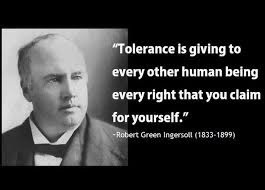
Tolerance. Understanding. Acceptance. Non-judgement.
Now, I need to go and practice my patience, and tell myself that my in-laws really are nice people. That being constantly late to any appointment is not a three-part tragedy. That I can convincingly lie and tell them that the party starts at 1pm, so that they arrive in time for 2pm.
**sigh**



